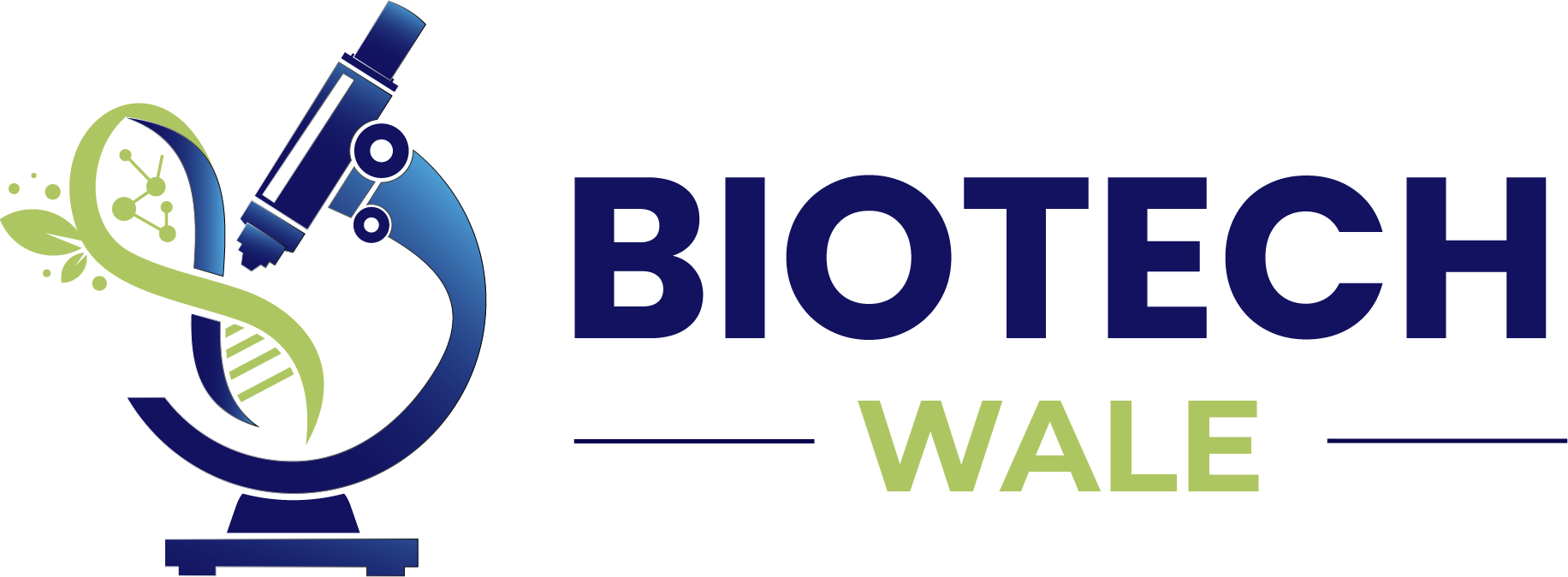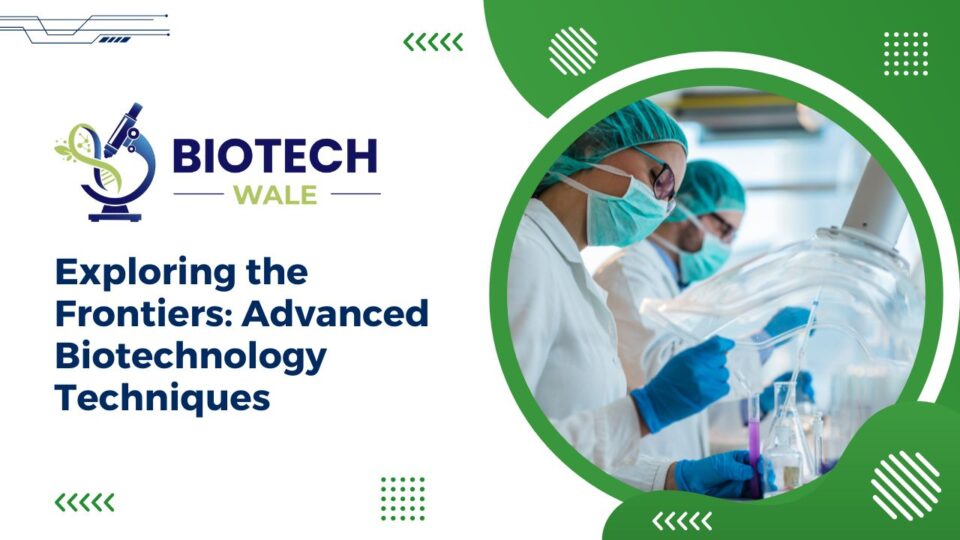Introduction to Advanced Biotechnology Techniques
Welcome to the exciting world of advanced biotechnology techniques, where science fiction becomes reality and the possibilities are endless! In this blog post, we will delve into the cutting-edge innovations that are revolutionizing the field of biotechnology. From gene editing to 3D bioprinting, get ready to explore the frontiers of science and discover how these advancements are shaping the future of healthcare, medicine, and beyond. So buckle up as we embark on a journey through the fascinating realm of advanced biotechnology!
The Evolution of Biotechnology
Biotechnology has come a long way from its humble beginnings. What once started as simple fermentation processes for brewing beer and making bread has now transformed into a cutting-edge field at the forefront of scientific innovation. With advancements in genetic engineering, biotechnology has unlocked new possibilities that were once unimaginable.
The evolution of biotechnology can be traced through key milestones such as the discovery of DNA’s structure, the development of recombinant DNA technology, and the emergence of gene editing techniques like CRISPR. These breakthroughs have revolutionized various industries, from healthcare to agriculture, paving the way for personalized medicine, genetically modified crops, and more sustainable practices.
As scientists continue to push boundaries and explore new frontiers in biotechnology, the future holds even greater promise for addressing global challenges and improving quality of life for people around the world.
CRISPR Technology and Gene Editing
CRISPR technology has revolutionized the field of biotechnology, offering precise and efficient gene editing capabilities. By utilizing CRISPR-Cas9 systems, scientists can target specific genes within an organism’s DNA with unprecedented accuracy. This breakthrough allows for the modification of genetic sequences to correct mutations or introduce desired traits.
Gene editing using CRISPR has vast implications in agriculture, medicine, and beyond. In agriculture, crops can be engineered for increased yield or resistance to pests. In medicine, genetic disorders may one day be treated by editing out harmful mutations at the molecular level.
The potential of CRISPR technology extends even further into areas such as synthetic biology and personalized medicine. As research continues to advance in this field, we are on the brink of unlocking new possibilities for improving human health and enhancing our understanding of genetics.
Nanoparticles in Drug Delivery
In the realm of advanced biotechnology, nanoparticles are revolutionizing drug delivery. These tiny particles, often a thousand times smaller than a human hair, can carry medication directly to targeted cells in the body. Picture them as mini couriers delivering potent treatments right where they’re needed most.
By encapsulating drugs in nanoparticles, scientists have unlocked new possibilities for treating diseases more effectively and with fewer side effects. These microscopic carriers can navigate through biological barriers that traditional medications struggle to penetrate. It’s like having an army of specialized vehicles escorting medicine straight to the battleground within our bodies.
Moreover, nanoparticles offer improved stability and prolonged circulation time for drugs in the bloodstream. This means patients may require lower doses less frequently while experiencing enhanced therapeutic outcomes. The potential impact of this technology on healthcare is immense – paving the way for personalized and precise medicine tailored to individual needs and conditions.
As researchers continue to refine nanoparticle formulations and explore their applications further, we stand at the cusp of a new era in pharmaceuticals where targeted drug delivery holds promise for transforming patient care profoundly.
Gene Therapy: Treating and Curing Diseases
Imagine a world where diseases could be treated at their genetic roots, offering hope for those suffering from inherited conditions. Gene therapy is revolutionizing the way we approach healthcare by targeting faulty genes and replacing them with healthy ones. This innovative technique holds the potential to cure a wide range of illnesses that were once considered incurable.
By delivering therapeutic genes into the body using viral vectors or other methods, gene therapy aims to correct genetic abnormalities responsible for various diseases. From rare genetic disorders to more common conditions like cancer and cardiovascular diseases, this cutting-edge approach offers personalized treatments tailored to individual patients’ unique genetic makeup.
While still in its early stages, gene therapy has shown promising results in clinical trials, paving the way for a future where debilitating diseases could be eradicated at their source. As researchers continue to refine this groundbreaking technology, the possibilities for treating and curing diseases through gene therapy are endless.
3D Bioprinting for Tissue Engineering
Imagine a world where organs and tissues can be created with the precision of a 3D printer. This is no longer a distant dream but a reality with the groundbreaking technology of 3D bioprinting. By layering cells to construct living structures, researchers are revolutionizing the field of tissue engineering.
The potential applications are vast – from creating skin for burn victims to generating complex organs like kidneys or hearts. The ability to customize these bioengineered tissues based on individual patient needs opens up new possibilities in personalized medicine.
One of the key advantages of 3D bioprinting is its ability to mimic the intricate structure of natural tissues, leading to better integration and functionality once transplanted into the body. This level of detail and control over tissue architecture is unprecedented in traditional regenerative medicine techniques.
As this technology continues to advance, we move closer towards overcoming limitations in organ transplantation and addressing critical shortages. With further research and development, 3D bioprinting holds promise for reshaping healthcare as we know it.
Advancements in Stem Cell Research
Stem cell research has revolutionized the field of biotechnology, offering hope for treating a myriad of diseases and injuries. Scientists have made significant advancements in understanding the potential of stem cells to regenerate damaged tissues and organs. By harnessing the regenerative properties of stem cells, researchers are exploring new avenues for personalized medicine and regenerative therapies.
One key development is induced pluripotent stem cells (iPSCs), which can be generated from adult cells and reprogrammed into any cell type in the body. This breakthrough technology opens up possibilities for patient-specific treatments without the need for donor matching. Additionally, scientists are investigating how to manipulate stem cells to differentiate into specific cell types, such as neurons or heart muscle cells, for targeted therapies.
The ongoing progress in stem cell research holds promise for unlocking novel treatment options for conditions like spinal cord injuries, diabetes, Parkinson’s disease, and more. As researchers continue to delve deeper into the capabilities of stem cells, we may witness groundbreaking discoveries that could transform healthcare as we know it.
Bioinformatics: Analyzing and Utilizing Biological Data
Bioinformatics, a fascinating field at the intersection of biology and technology, plays a crucial role in deciphering the vast amounts of biological data available today. By harnessing computational tools and algorithms, scientists can unravel complex genetic sequences to uncover valuable insights about diseases, evolution, and more.
The utilization of bioinformatics extends beyond just decoding DNA. It allows for predictive modeling in drug discovery, personalized medicine based on individual genetic profiles, and even understanding the intricate networks within living organisms. With each breakthrough in bioinformatics comes new possibilities to revolutionize healthcare and research.
Imagine being able to predict disease susceptibility based on genetic markers or customizing treatment plans tailored to an individual’s unique genetic makeup. These are just some of the promises that bioinformatics holds for the future of medicine and biotechnology.
As technology advances further, bioinformatics will continue to play a pivotal role in transforming how we approach healthcare and scientific discoveries.
Ethical Considerations in Advanced Biotechnology
As we delve into the realm of advanced biotechnology, ethical considerations become increasingly crucial. The power to manipulate genes raises questions about playing ‘nature’s role.’ With CRISPR technology paving the way for precise gene editing, where do we draw the line?
Nanoparticles in drug delivery offer immense potential for targeted treatment but also pose concerns about unintended side effects on the human body and environment. Gene therapy holds promise in curing genetic diseases, yet issues like access and affordability need careful navigation.
3D bioprinting opens up a world of possibilities in tissue engineering, but what implications does it have on organ donation ethics? Stem cell research advancements bring hope for regenerative medicine, yet debates arise around consent and exploitation.
Bioinformatics revolutionizes data analysis but brings challenges regarding privacy and security. As we push boundaries in biotechnology, staying mindful of these ethical dilemmas is paramount to harness its full potential while safeguarding humanity.
Future Possibilities and Limitations
The future of biotechnology holds endless possibilities, from personalized medicine tailored to individual genetic profiles to sustainable agricultural practices. Scientists are exploring the potential of using advanced techniques like CRISPR technology and 3D bioprinting to revolutionize healthcare and organ transplantation.
However, with these advancements come ethical dilemmas and regulatory challenges. As we push the boundaries of what is scientifically possible, questions arise about how to responsibly harness these technologies for the greater good without causing harm or unintended consequences.
Despite the limitations and uncertainties that accompany cutting-edge biotechnology research, the drive for innovation continues unabated. With ongoing developments in stem cell research, gene therapy, and bioinformatics, we are on the brink of a new era in which diseases may be eradicated and human health vastly improved.
It’s an exciting time to be part of this rapidly evolving field as we navigate towards a future where science fiction becomes reality.
Conclusion
As we journeyed through the frontiers of advanced biotechnology techniques, we witnessed remarkable breakthroughs that are shaping the future of healthcare and scientific research. From CRISPR technology revolutionizing gene editing to 3D bioprinting transforming tissue engineering, the possibilities seem endless.
The evolution of biotechnology has paved the way for personalized medicine, targeted therapies, and innovative treatments. As we delve deeper into bioinformatics and stem cell research, new insights continue to emerge, pushing boundaries and expanding our understanding of life at a molecular level.
While these advancements offer tremendous promise in treating diseases and enhancing human health, ethical considerations remain crucial in navigating this rapidly evolving field. Striking a balance between innovation and responsibility is essential to ensure that the benefits outweigh any potential risks.
Looking ahead, the future holds exciting prospects as scientists explore novel approaches to harnessing biological systems for medical applications. By embracing collaboration, transparency, and ethical standards, we can unlock the full potential of advanced biotechnology for the betterment of society.
In this era of unprecedented scientific advancement, one thing is clear – the frontier of biotechnology is vast and ripe with opportunities waiting to be explored. With each discovery and innovation pushing boundaries further than before, we stand on the brink of a new dawn in healthcare where precision medicine could become a reality for all.
Let’s continue to push towards progress while keeping ethics at the forefront – together paving the way for a brighter future fueled by cutting-edge biotechnological advancements.





Average Rating